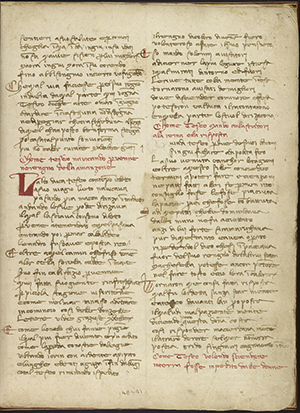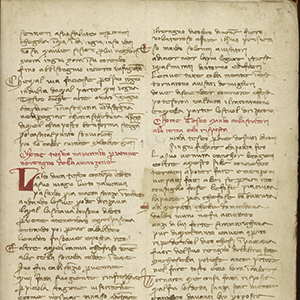
This talk will explore the editorial and intertextual relations between Giovanni Boccaccio's autograph of the Teseida (preserved in Florence, Biblioteca Medicea Laurenziana, Acquisti e doni 325) and two exemplars of the poem: Philadelphia, UPenn Codex 254 and Cambridge, Houghton, Typ 227. It will investigate to what extent the material configuration of these exemplars comply with the hermeneutic guidelines materially embedded by Boccaccio in his autograph in order to control the reception and interpretation of the poem. This compliance will be described in terms of Boccaccio's successful editorial project of inscribing his literary production within the canon of authoritative texts. The rich paratextual apparatus with which Boccaccio furnishes his autograph is at the basis of the affirmation of the Teseida as a classic and of the proliferation of comments and accretions around the text of the poem. By conducting this study under the aegis of material philology, the intent is to show how the interpretation of a text needs to be accompanied by an inquiry into the material conditions of its composition, dissemination, and consumption. The purpose is to show a paradigmatic example of the basic coincidence of textual datum and material unit, of content and medium, of verbal-iconic message and physical support.
